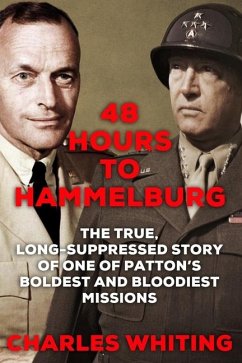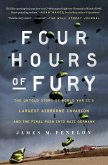The epic account of World War Two's most disastrous rescue mission. "An amazing episode of courage" The New York Times Perfect for fans of Hampton Sides' Ghost Soldiers and Ben MacIntyre's SAS: Rogue Heroes. Gen. George Patton was one of the great military leaders of the Second World War, but when war became personal, he made one of the worst mistakes of his entire career. In March 1945 Patton went against the advice of his top subordinates and created a secret task force under Captain Abraham Baum to drive through a gap in the Nazi defences. Their target was to rescue the prisoners-of-war held in camp Oflag XIII-B near Hammelburg. Of the three hundred men who were part of this task force only one knew the real reason that this mission was set up: to rescue Patton's son-in-law, Lieutenant-Colonel John K. Waters. Encountering heavy fire from the offset, the mission was an unmitigated catastrophe. Yet, it was not just enemy resistance which impeded the drive behind enemy lines, as the task force soon realised it was lacking maps and fuel. Of the men who set out, only thirty-five made it back to Allied lines. Gen. Omar Bradley dismissively later said the mission "began as a wild goose chase and ended in tragedy." Why had Patton authorized such a catastrophic mission? Was he blinded by his desire to save his son-in-law? And what caused the task force to fail so dramatically? Interviews with numerous combatants, from private to general, American and German, allows Charles Whiting to reveals the gripping, true and long-suppressed full story of what exactly happened in this dramatic rescue attempt.
Hinweis: Dieser Artikel kann nur an eine deutsche Lieferadresse ausgeliefert werden.
Hinweis: Dieser Artikel kann nur an eine deutsche Lieferadresse ausgeliefert werden.





![Hours off and on Sentry, or, Personal Recollections of Military Adventure in Great Britain, Portugal, and Canada [microform] Hours off and on Sentry, or, Personal Recollections of Military Adventure in Great Britain, Portugal, and Canada [microform]](https://bilder.buecher.de/produkte/66/66165/66165595m.jpg)


